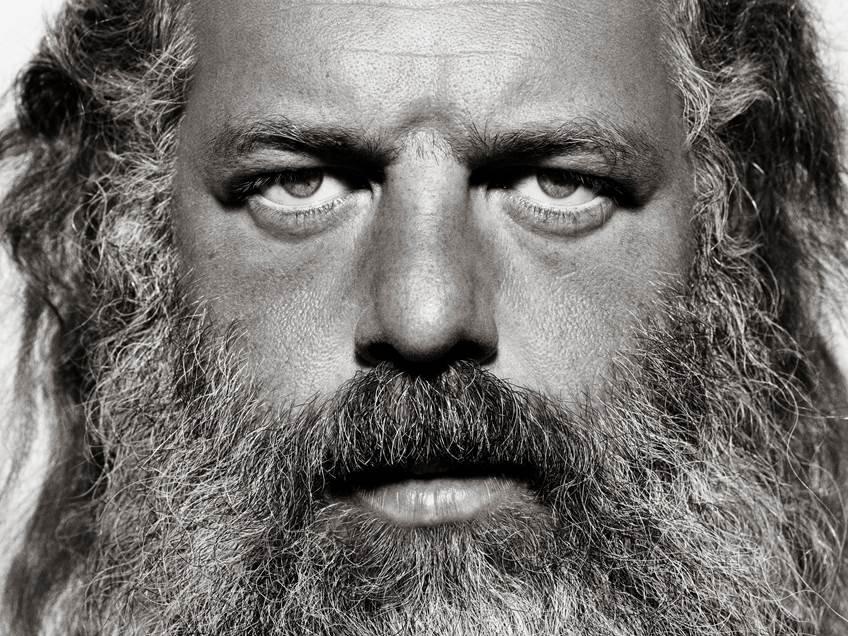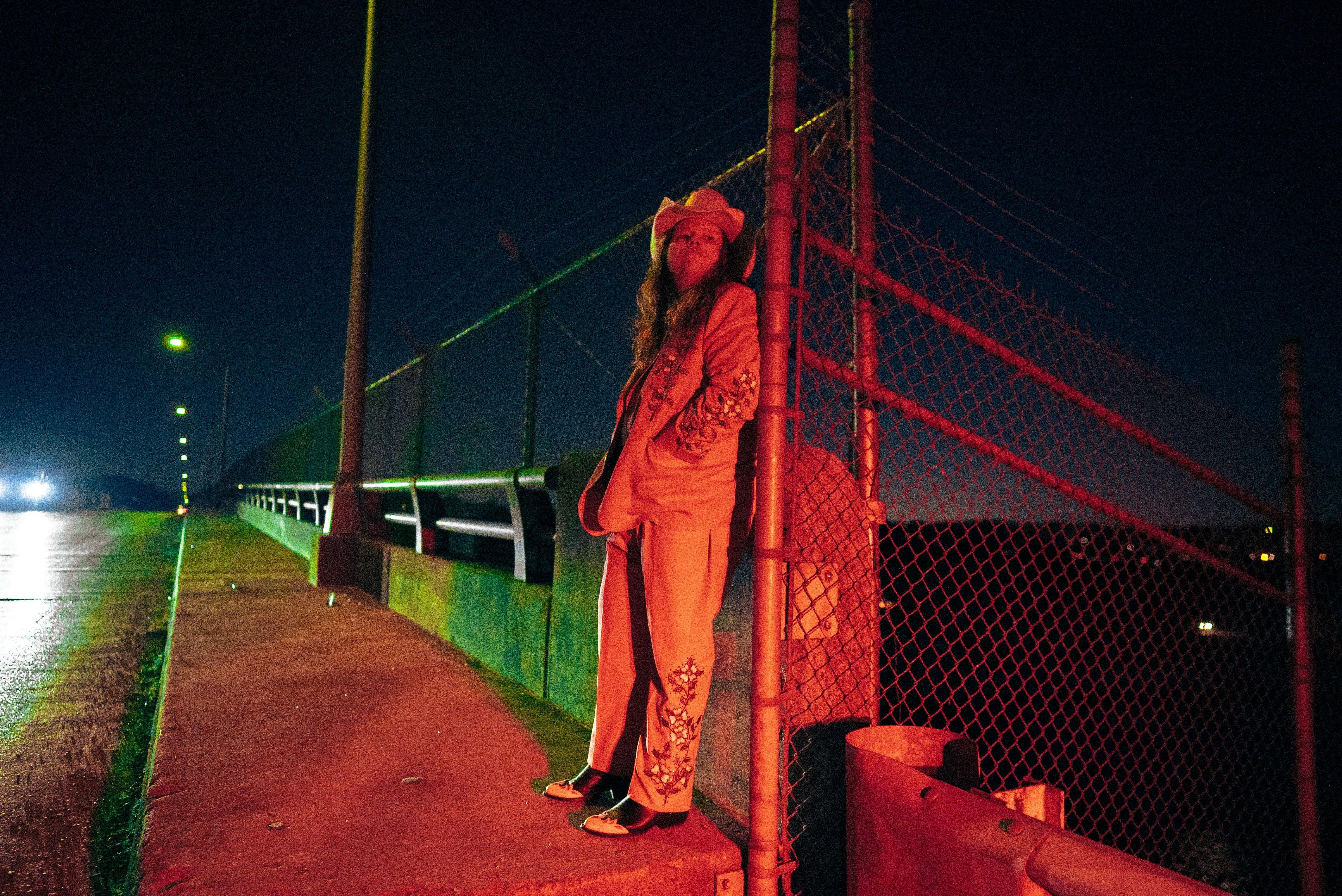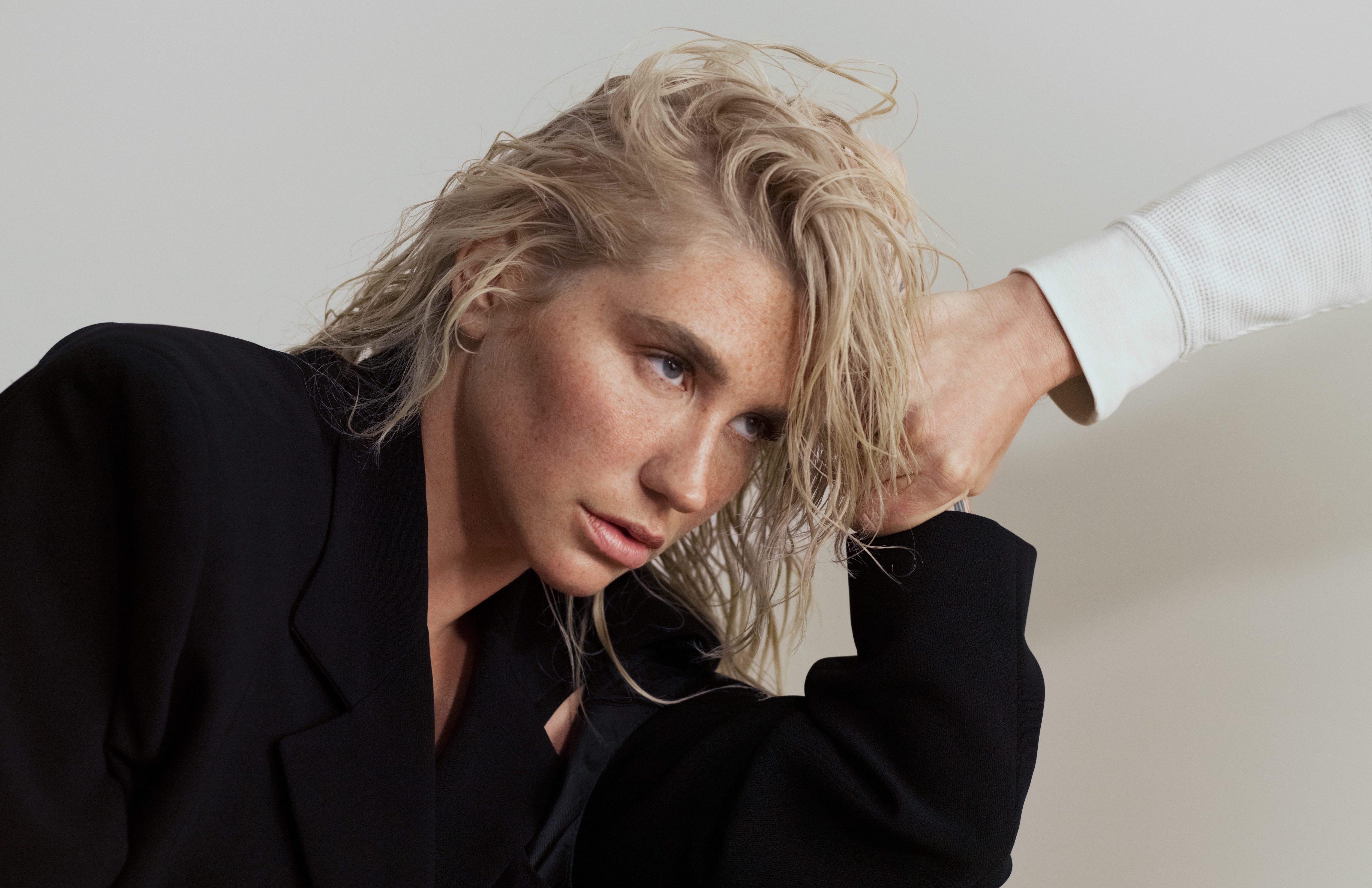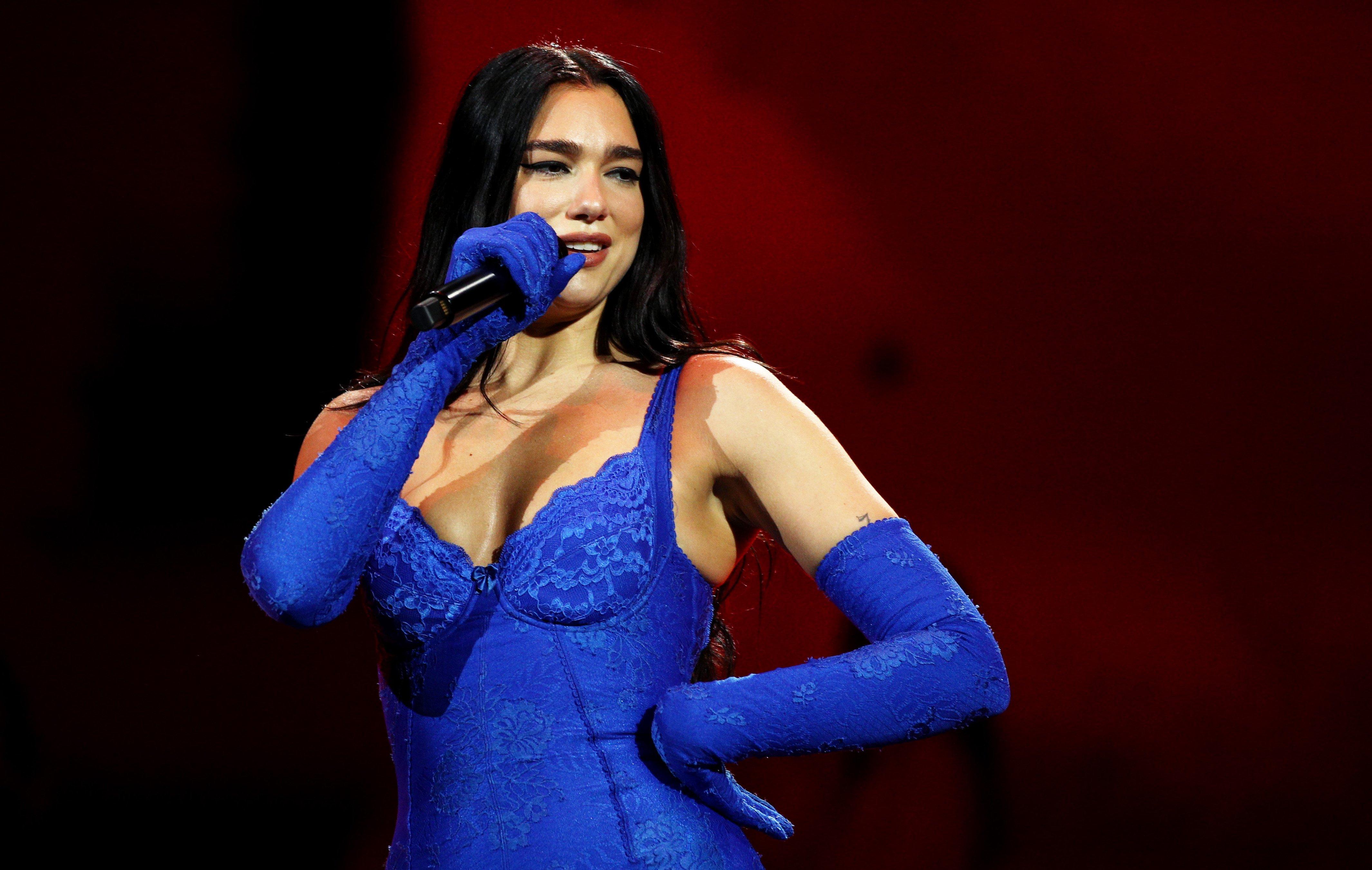Upon listening to Kesha's new album, Gag Order, one thing is abundantly and immediately clear: She's not the same girl the world met in 2009.
While Gag Order is less upbeat than Kesha's previous albums, it's the most introspective and vulnerable she's been as a songwriter. But all makes sense; this is a girl who has been through very public trauma and health struggles, who has finally broken through and found hope on the other side. Even still, she hasn't lost sight of the girl who once brushed her teeth with a bottle of Jack.
"There are three albums I know in the history of my life that I have put every fiber of my f—ing being into — Animal, Rainbow, and now Gag Order," Kesha tells GRAMMY.com. "I'm incredibly proud of what [Gag Order] is, and who I've become through the process of it."
She refers to Gag Order as an "emotional exorcism," which is an undeniably accurate description of the album's dark, yet cathartic narrative. It feels like the deliverance Kesha has been building up to since 2017's Rainbow, and the older, wiser sister to the quirky character in 2010's Animal. And though Gag Order may have a different sound, Kesha is adamant that every stage of her career has played a role in getting her to this point — even if it has been an "emotional roller coaster."
To celebrate Gag Order's release, Kesha looked back at her entire discography and selected 10 songs that feel the most important to her story — whether they involved funny moments, career highlights, a special creation process, or a favorite live moment. Read the singer's picks below, and learn why songs like "Blow," "Praying" and "Happy" are crucial to the fabric of Kesha.
"Tik Tok," Animal (2009)
I was on a long plane ride from L.A. to London. It was the first time I got the upgrade to business class, and I remember thinking like, Oh my god, does this mean I made it?
Right behind me, there were these two kids, and they were being so annoying the whole trip — for like 13 hours, screaming and singing. And I remember turning to the person next to me, who was my manager at the time, and I was like, "Oh my god, these kids are so..." and then they started singing "Tik Tok," and I was like, "...cute."
I just started laughing. And I thought to myself, Well, I'm listening to two 5-year-olds sing about brushing their teeth with a bottle of Jack, so I love them now.
I went from playing a club in L.A. called the Echo to about 20 people, and "Tik Tok" came out, and my next gig was Lollapalooza, and there was a sea of people at the stage. And I was really confused. I thought maybe they had shown up for the wrong stage. And then when I started playing, everyone was singing "Tik Tok" to me, and it was so overwhelmingly exciting. That was another moment where I was like, "Oh, this is about to change the trajectory of what my life's gonna look like now."
And then "The Simpsons" redid the intro to [the show], but with "Tik Tok" — and I think at that point, they'd never done that before. I'm not sure if they have done it again. But I just remember being like, "I think I did something that is hitting the zeitgeist in a particular way that I had not bargained for."
"Blow," Cannibal (2010)
It's such a fun song, and I remember making the video for that with James Van Der Beek. And it was such a funny memory, because in the original idea for the video, we were supposed to kiss, but instead, we both decided it would be infinitely weirder to, like, eat cheese.
It was random, and he is the nicest guy in the world. Obviously incredibly talented, but so kind and so cool. It was such a wonderful experience working with him because he was really on board with making it as weird as we think it is. I was really pleased with how weird that video came out.
Playing that song live is one of my favorite experiences, because it's [the part of] my live show where I get to assault the world with glitter. I always have my trusted glitter backpack that I've had since 2008. I had a custom-built glitter backpack, which was the bane of the existence of the people I toured with because it would explode all of the time. Everyone had glitter everywhere to the point where they were getting upset. They were like, "I found the f—ing glitter in my belly button!" and I was like, "I don't know what to tell you about that, I'm really sorry."
"Cannibal," Cannibal (2010)
I was just so pleased with my pen game on that one. Also, I wrote that with my mom, so it was just really funny writing this kind of dark, deranged song with your mom about eating people. I came from her, so she's as deranged as I am. That, like, sums up our relationship.
When I play it live, I've strapped my dancers to a S&M, like, kink cross, and pulled their heart out, and then proceeded to cover my face with fake blood — like, indulge in the cannibalistic routine of eating one of my dancers. My favorite moments of every show I've ever played is the glitter assault and the cannibalism routine.
It's been really cool watching people on TikTok kind of reconnect with that song. I feel like it had this major resurgence like a year or two ago where everyone was doing moves to it. I always appreciate the "Cannibal" love.
"Bastards," Rainbow (2017)
I was walking into my old house, and I had this, like, overwhelming urge to pick up the guitar. I sat on my bed and wrote that song really quickly, by myself. That song was so f—ing special to me. I knew I wanted it to open the album.
The Rainbow album was when I made the switch to step over into strength and power. I love when that flip happens in the process of making an album, because there's usually self reflection, a little bit of self doubt, feeling sorry for myself, sadness, and then the moment that switches into the fuck you territory is when things really get good.
I am like any human. I don't like reading negative things about myself. But at some point, it turns from beating myself up and hating myself into this self defiance in who I am. And if you don't like me, then f— you. All my haters should know that they fuel some of my best songs.
Playing that song live, I love it when all my fans put their phone lights up and sing with me. Because it feels like this anthem of existence and pride in who you are, and really, not only surviving, but celebrating who you are, and not allowing other people's opinions to get the best of you. I really love playing it, because it's, like, an ocean of lights, and that kind of feels like you're swimming in this ocean of love.
"Praying," Rainbow (2017)
"Praying" is, pretty indescribably, one of the highlights of my career. That was such a defiant song, and it's the most eloquent, graceful, beautiful song that I've ever heard. There's so much emotion to it, but at the soul of that song, it's standing in me knowing exactly who I am and what I stand for.
I will forever and eternally be grateful to that song. I feel like that was a cosmic interpretation from the universe that was gifted to me and the co-writers of that song. It was just the perfect combination for, in my mind, the best, most graceful f— you song that's ever existed. And I'm not like a megalomaniac narcissist, but I feel like having some distance from it, I can really see that now.
"Praying" set a new bar for me. "Praying" became the song that I try to beat every time I write a song, because I was so impressed with what me and the other writers did.
Coming from a music family, it's like our lineage. And as a songwriter, I feel like I can make my ancestors proud with certain moments in my career. And "Praying" was definitely one of them.
"Raising Hell," High Road (2020)
That song was so much fun. That was kind of a reclaiming of my joy in a time where I didn't feel very entitled to have joy. I felt like the joy was not mine for the taking, and this was me stealing it back without permission.*
I'm a good person, with a love for, like, the bad and fun side of life. I think that I wanted to celebrate that instead of shaming myself, because I feel like everybody needs some level of badness to really enjoy life.
"Raising Hell" was a moment for me, especially making the video. That was so cathartic, because I got to celebrate the song, but I also got to make this amazing narrative video with Luke Guilford, where I got to be the character I've always dreamt of being — a cross between, like, an evangelical preacher, a murderer and a bandit.
There was a scene that got cut out when I'm dragging my a—— of a husband's dead body across the ground. I was actually dragging like 100 pounds in this tarp, and I remember just gutterally screaming for three minutes. We wanted to include it in the video, but it just seemed so psychotic that everybody else was like, "We can't have three minutes of you screaming." And I was like, "But why not?" [Laughs]
I'm gonna remember that scene forever, because it was so cathartic to drag a dead body across the room screaming. I don't know what [it was] about it, but it forever will be one of my favorite moments in my career.
"Eat The Acid," Gag Order (2023)
That's a direct quote from my mom. She said, "Don't ever eat the acid, you don't want to be changed like it changed me." She told me that when I was really young, and I still to this day have never eaten acid. That's the irony of the whole album, because that was the catalyst for my new album.
The night before I wrote that song, I was just having all of this anxiety, and really feeling destabilized in this collective trauma that was the past couple years for the entirety of the world. I had this spiritual awakening, ego death, psycho magic — that's what I call that night. And I had this full visual experience and conversation with what I now look at as the source energy.
I truly felt like that was a psychotic breakdown, but then I talked to my therapist, and she said, "No, congratulations, that's a spiritual awakening." So I just decided, on this album, to lean into it, and really go into what that experience was. I wanted the song and the album to sound like how I was feeling.
I really wanted to end the song with confidence and power. It's this journey of disassembling to reassemble, and breaking down the illusion to create a new beginning — a rebirth. And by the end, kind of the final statement I'm making is, Now all I'm going to focus on, I realize now, is to be happy. All of the external validation, and these things that I always thought I wanted, they look differently than how I had expected. My focus, instead of obtaining fame, fortune houses, cars, boyfriends, online love, or anything material, is more learning to love myself and come to peace with my past and opening up a blank slate for my future."
"Eat The Acid" is the first song I wrote for the album. It was kind of an undeniable moment where I thought, this was really different, and I don't know if anybody is going to like this. But this is what being an artist is, and if I get the great pleasure of being an artist this lifetime, it would be a disservice to myself, and anybody that spends the time listening to my music, to not be completely honest with where I'm at. Because every album and every song is like a tiny chapter in the book of who I am. It's going to be what survives long after I'm dead.
"Hate Me Harder," Gag Order (2023)
That was the pivoting moment of the album in finding my strength. That was one of the first songs I wrote at this little mini writing camp with Justin Tranter at his mountain home. There were eight writers sitting around in his basement. We're all sitting on the ground, and I just remember telling them, "I really want this strong anthem, about how I have endured so much hate in my career at this point. I'm so happy to be at a point where it almost fuels me."
Sitting in a room full of eight people screaming "Hate me harder," I was envisioning doing that [with] an arena of my fans. It feels so powerful and so strong.
"Only Love Can Save Us Now," Gag Order (2023)
The song that opened up the album was "Eat the Acid," and the song that anchored the album was "Only Love." Because throughout the emotional roller coaster that I was going through while making [Gag Order], I kept going back to the mantra of "only love can save us now." That's my mantra for the state of affairs in the world, that's my mantra for all of my interpersonal relationships — to try to lead with love, even though you're in the midst of all these other emotions. So it's the anchor, and it's really the heart of the album.
We were sitting at Shangri La, Rick Rubin's studio in a chapel, and I just had been so intensely on the emotional side of things on this album, so I went in one day and we banged this song out so fast. I kind of addressed everything that's going on in the world in this really concise idea that there's pain, and then there's the render. So the verses are pain and anger, and then the choruses are surrender and hope.
I remember texting Rick Rubin saying, "Oh my gosh. I think my new song is gonna make you poop." And he said, "Yay!" [Laughs] And then I said, "Did you poop?" And he said, "Yes!" I'm pretty sure that meant he liked it.
"Happy," Gag Order (2023)
"Happy" is my rebirth. "Happy" is the blank slate. "Happy" is me walking out of the wreckage of who I've been and what I've gone through.
Happiness is my purpose now, whereas before it may have been tied to validation and material things — accomplishments and numbers, and stats, and cars, and clothes, and brands. "Happy" is now what I try to embody in every single thing I do, in every breath I take, in every sentence I say. Not only do I want to be happy, but I wish that for everybody else because I feel like there would be a lot less pain and violence in the world if we were all happy. So that's kind of me opening up to my future.
I could see myself never putting out an album again, or putting out an album in six months. I have no idea where I'm headed. All I know is that in everything I do, I want to not only be happy, and lead with happiness and love.
I think that was what the experience of Gag Order was — realizing I have no control, so I might as well do this emotional exorcism, so I can truly be reborn. So I'm kind of just open to the universe to see where it takes me. And I'm really excited to see where that is, whereas before I felt like I had to be held to a standard of who I was. Now, I feel like I don't have to be held to any standards, it's all an illusion. I'm wildly curious what the universe has in store for me next, and I have no f—ing idea what that is.
Listen To GRAMMY.com's LGBTQIA+ Pride Month 2023 Playlist Featuring Demi Lovato, Sam Smith, Kim Petras, Frank Ocean, Omar Apollo & More





